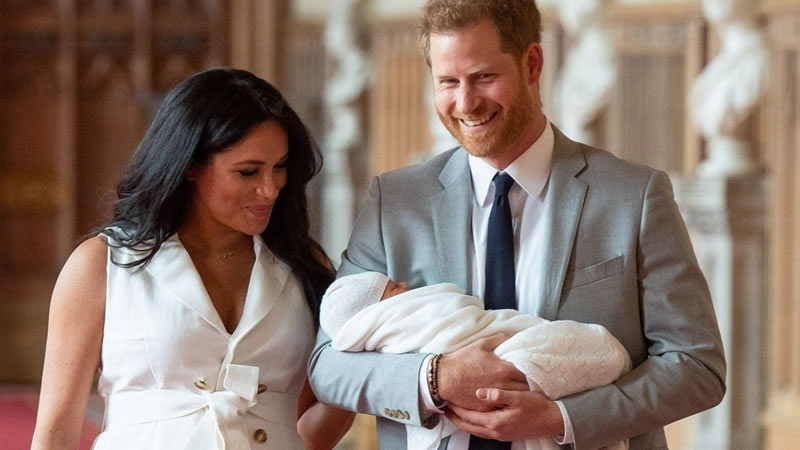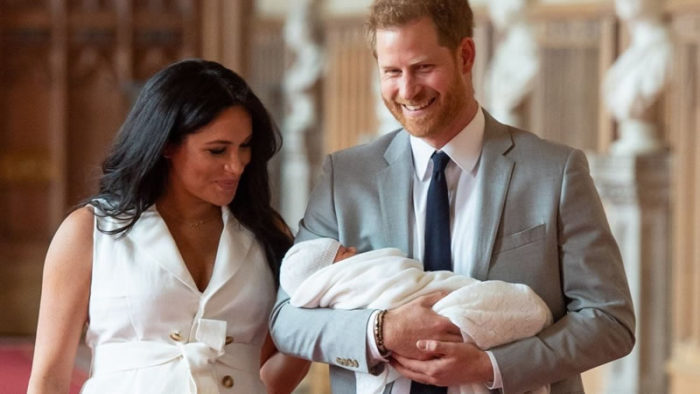

The children’s book could not have been better timed, to mark Archie’s second birthday on May 6 as Harry and Meghan prepare to welcome a daughter into the world in the coming weeks.
Focusing on fatherhood, the Duchess’s literary debut, The Bench, is set to share the “special bond between father and son.”
Featuring an all-too-familiar illustration of a ginger-haired soldier lifting his cute baby son in the air, there is a clear sense that this first foray into the written word could not be more personal for the Duke and Duchess of Sussex.
Indeed, it was based on a Father’s Day poem Meghan originally wrote for Harry in 2019, a month after Archie was born. Yet as copies of The Bench, illustrated by Californian artist Christian Robinson, are set to hit bookshops on June 8, what might readers make of a couple with their own obvious Daddy issues shining the spotlight so firmly on fatherhood?
Can you ever rewrite your childhood history? And should you even try?
View this post on Instagram
In light of Harry’s fractured relationship with the Prince of Wales in the wake of Megxit, opinions will be divided on whether this represents the literary waving of a white flag from across the pond – or an act of dramatised defiance.
It is no secret that the relationship between the heir to the throne and his younger son is not what it once was. The pair appeared to barely speak after the Duke of Edinburgh’s funeral at Windsor Castle on April 17, although it is understood they did have a lengthy conversation afterwards, away from the media gaze.
The awkward reunion came after Harry, 36, described his father, 72, and his brother William, 38, as being “trapped” in the monarchy during a jaw-dropping interview with Oprah Winfrey in March, in which the Sussexes also accused an unnamed member of the Royals of being racist and unsupportive.
Revealing Charles “stopped taking my calls” in the lead up to the couple’s decision to step down as senior Royals in January 2020, Harry painted a picture of a father who had delegated his parental responsibilities to his staff. Naturally, the future king was described as “devastated”, “despairing” and “deeply saddened” by the revelations, which sent shockwaves through the House of Windsor.
The tensions seemed to deepen further when Gayle King, co-host of CBS’s This Morning show and a close friend of Harry and Meghan, revealed on US television that subsequent phone calls between father and son had proved “unproductive”. Of course it wasn’t always this way. When Meghan, 39, first arrived on the Royal scene in 2016, Harry and Charles had arguably never been closer, while William was said to have had the cooler relationship with his father. When the 20th anniversary of the death of Diana, Princess of Wales, came round in 2017, aides begged William to acknowledge his father’s role in their upbringing when he addressed journalists before the screening of an ITV documentary but he flatly refused.
Charles’s only mention came in another documentary for the BBC that year when it was left to Harry to pay tribute, saying: “He was there for us; he was the one out of two left and he tried to do his best and to make sure we were protected and looked after.”
It is thought this was done with Meghan’s encouragement after the American former actress stressed the importance of Harry remaining as close as possible to “the one parent you have left.”
Both children of divorce, at that point Meghan enjoyed a close relationship with her own father, Thomas Markle Snr, with whom she lived full-time until her adolescence following the Hollywood lighting director’s divorce from her mother, Doria Ragland, in 1987.
Yet their once tight bond was irretrievably broken after Mr Markle appeared to conspire with a paparazzi photographer before the Royal wedding in May 2018, and then pulled out of the ceremony at the last minute due to ill health – leaving the bride with no one to walk her down the aisle. The soon to be newlyweds were so distraught they were both left in tears.
Sensing their deep anguish, Charles was only too willing to do the honours for his adored soon to be daughter in law in the absence of Mr Markle, 76, who lives in Mexico. He had taken an instant shine to the Northwestern graduate, who shared his passion for holistic remedies and impressed him early on by taking an interest in British military history and the arts.
Both Charles and Camilla, the Duchess of Cornwall, took great delight in hosting Doria for afternoon tea when she landed in the UK for the Windsor wedding, with one Royal insider describing them as having “got on like a house on fire”.
Yet as Harry and Meghan began to plan a departure from The Firm in a bid to seek financial independence in the US, which with TV and book deals is now coming to fruition, cracks in familial relationships soon appeared.
Although, as the Queen put it, “recollections may vary” as to what exactly happened in the months leading up to the Sussexes’ bombshell announcement, it is accurate to say Harry felt let down by his father after he attempted to speak to him and his grandmother face to face, only to be blocked by Royal aides. Yet palace insiders have since put a different spin on those events. They claim the Sussexes had a propensity to “blame the staff” when they did not get their own way and according to one well-placed source: “He [Charles] ploughed money into the wedding and into Frogmore [the couple’s Windsor home] and did his utmost to make them feel financially supported but then when they said they were upping sticks, he had less and less inclination to take calls.”
Meghan insists her new book, for which she is believed to have received an advance of between £250,000 and £500,000, involves “warmth, joy and comfort”. She said: “My hope is that The Bench resonates with every family, no matter the make-up, as much as it does with me.”
Yet is it likely to resonate with either Charles or Mr Markle, who is still estranged from his daughter?
According to psychologist Linda Blair, even though the book talks about fatherhood in a generic way, “It’s always important if you want to make something public that everybody you talk about is on board with it.
“When people have a difficult time, they react in one of three ways. The first is to say: ‘My past is not going to control me, I’ll forge ahead and see what happens’. The second is not to be conscious of it but to idealise it and the third is to remain stuck in misery and feel you can’t rise above it.
“No one is necessarily able to ‘write’ their way forward – it should be simply an offloading of freedom to let go and not to prescribe the future.”
Laverne Antrobus, a consultant child and educational psychologist at The Tavistock Clinic, says for those who have experienced trauma in their childhood, becoming a parent can stir things up in a way they can’t anticipate. “It really does bring losses into quite sharp focus,” she says. “The moment you have your own child, you have that relationship that speaks to the unspoken bits and creates a narrative in your mind that you really have to work hard to understand.”
Harry and Meghan will both have to “manage something about loss in very different ways,” she suggests. “It’s incredibly important for this subject matter to be talked about because it’s the undoing of a lot of adults who can’t get past a loss.”
While parents will often go to extra lengths to try to create for their own children the childhood they didn’t have themselves, it remains to be seen whether putting pen to paper will be enough to heal their own family troubles and persuade Meghan and Harry to take their own fatherly relationships off the bench.